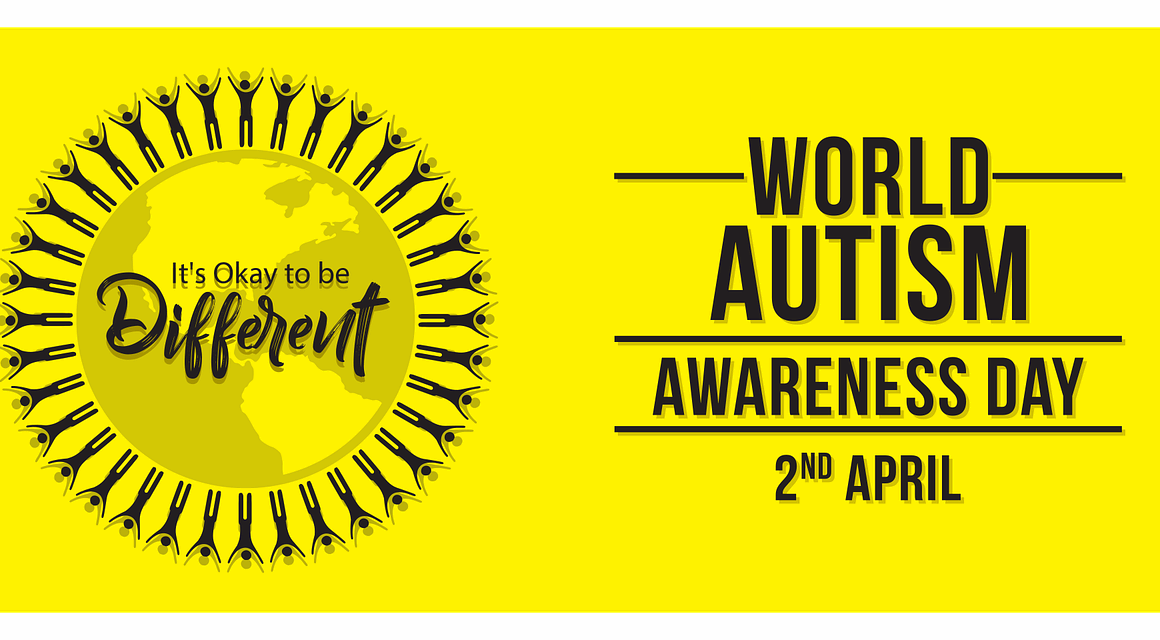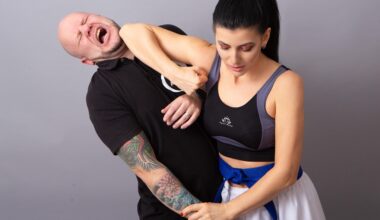CrossFit for Kids with Special Needs: Inclusive Approaches
CrossFit has emerged as a robust fitness regimen for people of all ages, including children and teens. One significant extension is CrossFit for Kids with Special Needs, focusing on inclusivity and adapting workouts to varying abilities. This approach allows children with diverse physical and cognitive challenges to participate meaningfully. Coaches receive training to tailor programs that enhance the experience for every participant, ensuring no one feels left out. Community support plays a vital role in establishing a welcoming environment. Through encouragement and positive reinforcement, kids can engage confidently in workouts designed for them. Additionally, fostering social interactions during classes promotes teamwork and friendships. Activities can range from bodyweight exercises to light weightlifting, all adjusted for individual needs. Ensuring accessibility is crucial in designing workouts, making the routines both fun and effective. CrossFit also emphasizes skill development and motor functions, benefiting children’s overall physical health. By maintaining an inclusive atmosphere, we empower youth, fostering their growth not just physically but emotionally and socially. This comprehensive approach nurtures resilience and self-esteem, which are invaluable qualities for all children, especially those with special needs.
These fitness principles align perfectly with the goals of CrossFit for Kids and Teens, aiming to create a lifelong love for movement. Coaches specializing in working with special needs children employ various inclusive tactics. They utilize visual aids and demonstrations when explaining exercises ensuring everyone understands the movements, which fosters confidence. Incorporating games and challenges can increase engagement and fun while promoting fitness awareness. Moreover, peer partners are often assigned to encourage participation, building meaningful relationships among participants. These peer interactions empower both the children with special needs and their partners, nurturing empathy and understanding within the community. Adaptability is key, as it ensures every child can enjoy the fitness experience while also making progress at their own pace. This inclusive atmosphere extends beyond the gym, as families often find support networks within the community. Their shared experiences in such programs create a sense of belonging, highlighting the importance of physical activity for overall health. Studies show that the right fitness approach can positively impact mental health, physical condition, and social skills in children with disabilities. Thus, CrossFit for Kids with Special Needs becomes a vehicle of empowerment and growth.
Creating a Supportive Community
Establishing a supportive community is essential for the success of CrossFit for Kids with Special Needs. Local CrossFit gyms can host inclusive events where families and children come together to engage in fun physical challenges. These events not only raise awareness but also promote understanding and acceptance of kids with disabilities. Coaches, families, and peers must collaborate to create an accepting environment where differences are celebrated. Involvement by parents fosters a greater connection, allowing them to witness their children’s development in fitness and social skills. Regular feedback from parents regarding their child’s experiences can help coaching staff continuously improve the program’s quality and effectiveness. The inclusion of testimonials from families can inspire new participants, highlighting the benefits of engaging in similar activities. Community fundraising can also generate excitement while supporting necessary resources for specialized equipment and training. Furthermore, incorporating local businesses into these events can enhance visibility and support. Allies in the community play a vital role in ensuring the program thrives, providing necessary resources and connections. Collectively, these efforts cultivate an environment that nurtures everyone’s self-esteem and teaches valuable life lessons about teamwork and perseverance.
Moreover, the involvement of specialized trainers enhances the effectiveness of CrossFit for kids with special needs. Trainers familiar with various disabilities can provide tailored workout regimens that address individual abilities and limitations. This ensures specific needs are met, which can be vital for a child’s health and safety during exercises. Each training session can incorporate different developmental components, such as balance, coordination, and strength training. Implementing structured classes also helps in monitoring each child’s progress, allowing for adjustments as they improve. Keeping the sessions dynamic and engaging is crucial; thus, trainers often employ fun challenges that stimulate both interest and competition. Additionally, collaboration with occupational therapists or physical therapists can improve overall fitness strategies. These professionals can supply insights into children’s unique requirements shaping efficient routines. CrossFit promotes holistic development, focusing on physicality while fostering emotional and social growth. Therefore, kids are not only becoming physically stronger but also enhancing their communication and social skills in a group setting. Ultimately, all these efforts contribute to an incredibly supportive atmosphere that yields lasting benefits for kids with special needs through CrossFit.
Visual Aids and Effective Instructions
Using visual aids and effective instruction can significantly enhance participation in CrossFit programming for children with special needs. Coaches should incorporate images, diagrams, or videos to demonstrate exercises clearly, allowing children to visualize the techniques. These additional teaching methods cater to various learning styles, especially visual learners who might benefit from observing rather than just listening. Simplifying language during explanations can further accommodate those with cognitive or communication challenges, making instructions more relatable. It’s essential to break down exercises into manageable steps, teaching one movement at a time, ensuring thorough comprehension before progressing. Additionally, maintaining consistent routines can help children feel secure and aware of what to expect during classes. Establishing clear cues and signals aids in capturing attention, promoting responsiveness. Repetition is vital in facilitating learning too, as children with special needs often thrive on consistent practice. Group encouragement and celebration of achievements can motivate all participants, reinforcing a culture of support and teamwork. By creating structured environments, coaches can foster a safe space where each child feels valued and understood. Ultimately, this attentive focus on instruction empowers youth, not just in CrossFit but in all areas of life.
Tracking progress is another essential component of CrossFit for Kids with Special Needs, serving as a foundation for success. Utilizing visual progress charts or milestone stars can create an motivating environment, celebrating each child’s achievements no matter how small. These tools help children understand their journey, promoting a sense of accomplishment and setting personal goals. Regular assessments allow coaches to adjust individual programs ensuring they remain aligned with each child’s evolving abilities. Such access to continuous feedback encourages endurance and resilience, vital traits for any individual striving toward fitness improvement. Achievement recognition can take various forms, from praise to simple awards, instilling pride and motivation in each participant. Additionally, parents should be involved in discussions around progress, offering encouragement and support at home. This collaboration between coaches and families reinforces the importance of a healthy lifestyle, extending benefits beyond the gym environment. Moreover, understanding the significance of fun in fitness, creating a positive atmosphere can enhance overall experiences. Engaging in activities within a supportive framework enables children to develop a love for physical challenges that continue throughout their lifetimes. Emphasizing that fitness can be enjoyable as well enriches their entire experience.
Benefits of CrossFit Beyond Fitness
Ultimately, incorporating CrossFit into the lives of kids with special needs yields numerous benefits beyond just physical fitness. Participation helps improve mental health conditions by providing a constructive outlet for energy and emotions. Engaging in regular exercises can reduce anxiety, depression, and stress, allowing children to develop coping mechanisms. As they push through challenges, they learn resilience, discovering their inner strength in various aspects of life. Additionally, skills gained from CrossFit, such as cooperation and teamwork, translate to other scenarios, including school and community activities. Children become more adept at forming relationships with their peers, enhancing social skills and communication. Furthermore, these experiences instill leadership skills, reinforcing independence and responsibility. Understanding and overcoming obstacles during workouts fosters a growth mindset, essential for navigating life’s challenges. Parents frequently report an increase in their child’s self-esteem and confidence levels after joining CrossFit programs, validating the need for such initiatives. As these children thrive, they influence their peers in positive ways, creating ripples of inclusion and acceptance. Consequently, the holistic benefits of CrossFit for Kids with Special Needs extend far beyond physical fitness, shaping individuals who are healthier and more balanced citizens within society.
In conclusion, creating an inclusive atmosphere through CrossFit for Kids with Special Needs lays a foundation for growth, resilience, and confidence. By employing tailored coaching, utilizing effective instructional methods, and fostering community support, we can empower these children beyond physical abilities. Ensuring each child feels a sense of belonging elevates their overall fitness experience, reinforcing the notion that everyone can achieve their best. As parents, coaches, and community members, we hold the responsibility of promoting inclusive approaches that celebrate individual differences. Emphasizing fun while developing critical motor skills through playful activities nurtures a passion for fitness, crucial as children navigate through life. With ongoing efforts to expand accessibility and awareness within CrossFit, we advocate for programs that uplift and benefit all. These frameworks not only affect participating children but positively impact families and communities at large. In the end, investment in inclusive fitness programs leads to better health outcomes, emotional nurturing, and lasting friendships formed. Together, we create opportunities for everyone to flourish both in fitness and every aspect of life, ensuring that children with special needs are equally represented and empowered to succeed. Let’s continue to be advocates for inclusive fitness for a brighter future.


